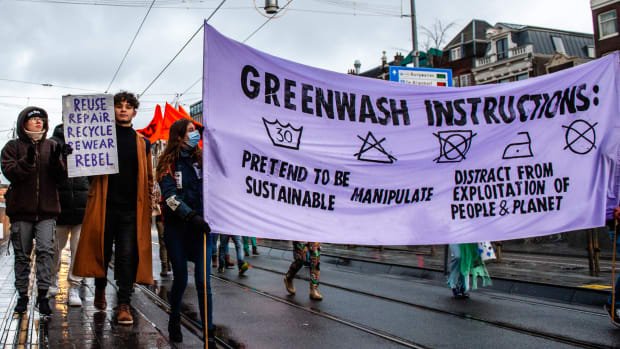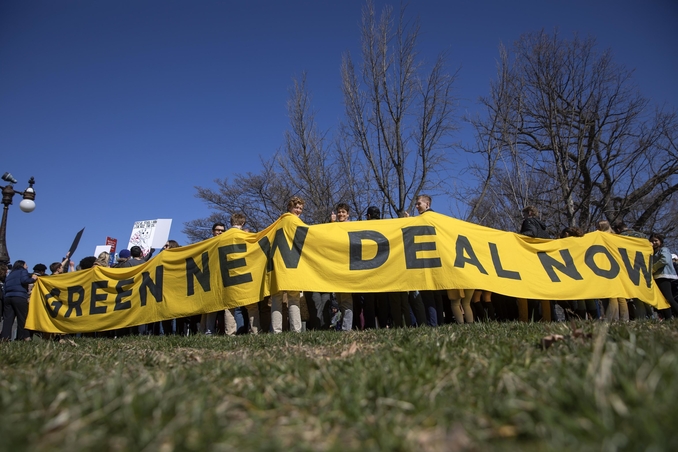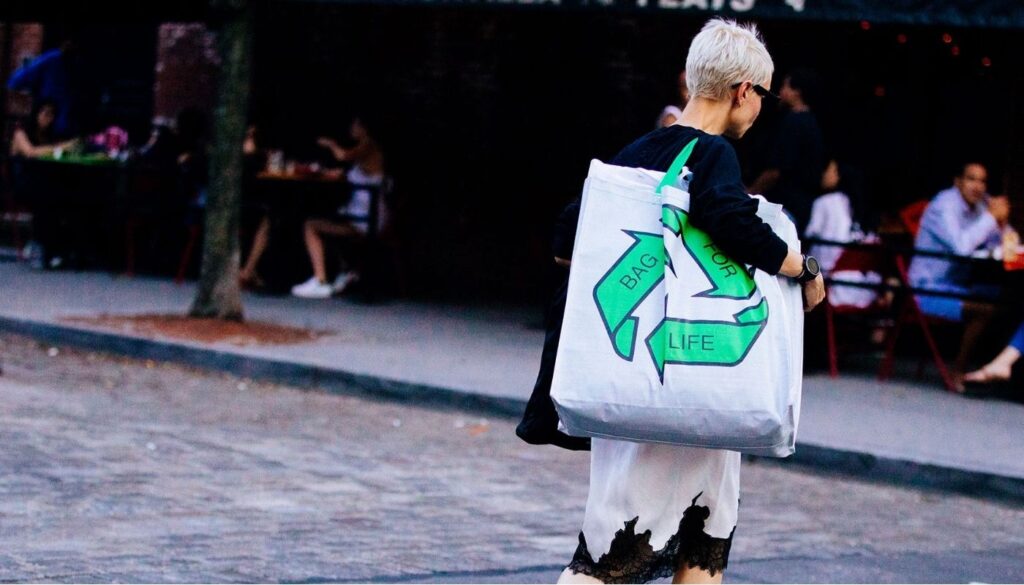Greenwashing refers to the misleading claims that companies make when claiming that their practices reduce environmental impact. The same is true when they claim that some of their products are environmentally friendly without providing any verification.
The same intention applies to the practice of collaborating with a socially or environmentally committed organization without having a compatible business model. In this case, the only purpose is to create a more positive impression with consumers who think they are buying sustainable products.

The greenwashing dilemma begins with misleading information, and the fashion industry is no exception.
Historically, the textile industry has not been able to be effectively regulated. This is due to its complex production chain. It is difficult for governments to control because of the lack of connection between responsibilities and legal obligations.
Individual actions, such as buying vintage or second-hand fashion and eco-certified sustainable brands, have been the only means of generating positive change within the industry.
We have had some voluntary commitments, but there is not a lot of pressure on companies at the moment. The data is pretty much hidden, said Maxine Bédat, Director of the New Standard Institute to Vogue Magazine.
It is up to each firm to do the right thing and implement more responsible practices. In the absence of control, what happens to firms that are unwilling to do so?
Legislative policies are essential to incorporate better practices in order to hold fashion companies accountable for their negative impact. At the same time, consumers benefit from being informed about which brands are sustainable and which are not.

The intent to legislate
Fortunately, governmental and international organizations are willing to take action and hold companies accountable for the misleading information they provide.
As part of the United Nations Climate Change Conference (COP27) held last November in Egypt, the International Organization for Standardization published a set of guidelines against greenwashing and false claims that can mislead consumers.
Greenwashing in Europe
The UK Markets and Competition Authority is taking action to ensure that firms that market their products as sustainable justify their claims.
So far, they have found that 40% of the claims that firms make online could be false. That’s why it warned Boohoo and Asos about possible consumer deception.
Last year, the CMA had already disseminated the Green Claims Code, a guide for consumers, which contains suggestions for more ethical consumption.
In Norway, the Consumer Authority ordered Norrøna to stop using Higg Index data (the number one sustainability rating tool in the textile industry) after finding the information on its eco-friendly garments to be misleading.
Such disapproval led the Sustainable Apparel Coalition behind the index to halt a consumer-oriented tool after Norwegian authorities determined that the data it contained was erroneous.
On the other hand, the European Commission presented the “Green Deal” legislative proposal. It is a set of measures that seek to empower consumers in the green transition. It provides them with tools to be better informed about the sustainability of products.
The Commission explained that the proposal seeks to guarantee access to reliable information for consumers so that companies will no longer make ambiguous claims about their sustainable products.
Greenwashing in Australia
The Australian Competition and Consumer Commission is working to find misleading sustainability claims in marketing strategies.
Greenwashing in América
New York City proposed a Fashion Sustainability and Social Responsibility Law. This promises to require fashion firms to share their environmental and social impacts. The intention is to increase transparency and enforce penalties for non-compliance.
In Latin America, Chile is working on a law to regulate greenwashing. The idea is that companies that advertise sustainability must provide verifiable information describing their environmental practices.

What to expect in the future
The several laws that have been proposed by many countries is a step in the right direction. It is a good indication of what the future will look like for the fashion industry.
Legislative policies against greenwashing within the textile industry are essential to achieve systemic change because they hold less committed firms accountable without relying solely on the voluntary actions of responsible consumers and brands that are transparent.
In the face of this, fashion firms will face increased pressure to justify their claims and will be forced to ensure that the statements they make are truly well-founded.
In short, the consumer has the right to be informed. They must be guaranteed the right to trust that the information they receive is credible so that they can make informed decisions. For that to happen, they must be protected against unfair practices that take advantage of them.
“Fashion is really getting away with it. There needs to be more systems implemented, more vigorous testing, and as a customer you can do that, you can challenge the people who are doing your fashion.”, Stella McCartney.





